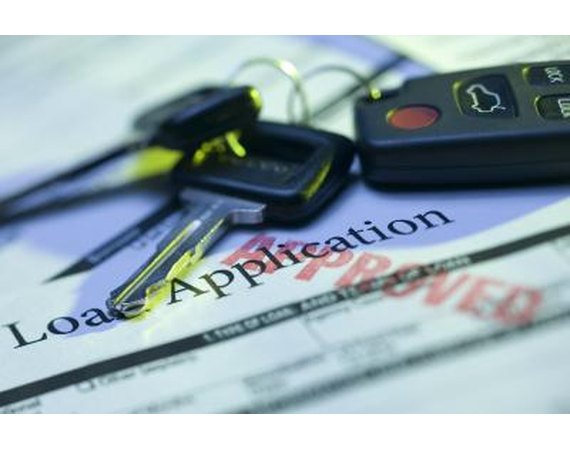
When a lender tries to repossess a car, he's exercising his rights under a legal document known as a lien. When a lender provides money for a car purchase, there is a possibility that the borrower may not pay him back. A lien provides security against this risk. It is important for borrowers to understand the basics of liens and to know their rights in the event of a repossession.
Basics of Car Liens
A lien is a legal document that secures a loan with a piece of property. In the case of a car loan, the debtor's agreement to pay is almost always secured with a lien against the car itself. The lender's ability to exercise this lien is not absolute he must follow the terms of the loan agreement with the borrower and the provisions of state law. While not every lien is consensual, a borrower usually agrees to the lien when he takes out a car loan.
Repossession
A lien grants its holder the right to take possession of property named in the document. A lender usually repossesses a vehicle as a last resort if the borrower has consistently failed to meet his obligations. According to Craig Howie, a financial reporter for AOL Autos, "the bank or lien holder has to fulfill several legal requirements before it can repossess a car." The lender usually has to give the borrower notice of his intention to repossess, and meet the paperwork filing requirements of local and state law.
Repossession Without a Lien
A lender cannot repossess a vehicle if he cannot prove he has a legally valid lien. This is because the lien is the very document that grants him this right; without it, the lender has no property interest in the car. It is rare for a lender to provide a loan without placing a lien on the collateral. Even a valid lienholder may not succeed in repossessing a vehicle if he conducts the repossession improperly or violates his end of the loan agreement.
Wrongful Liens
Not all liens are legally viable. In some unusual circumstances, a person may record a wrongful lien against another's property. In essence, a wrongful lien is a legally invalid document that its holder nonetheless claims in court, in an attempt to create a property interest where there isn't one. It is generally considered a type of fraud and in many states carries substantial legal penalties. In Utah, for example, recording a wrongful lien is a third degree felony.
No comments:
Post a Comment